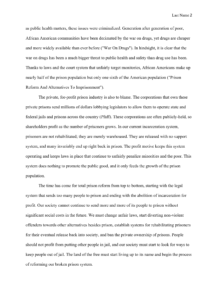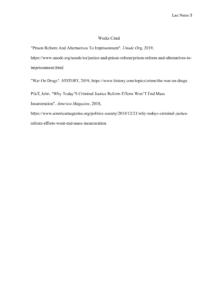Toll-Free US & Canada 24/7:
1-770-659-7014
Argumentative Essay Sample Pdf
An argumentative essay is one of the most standard types of essays written in academia. The portrayal of different perspectives helps in a wholesome approach to analyzing evidence. As a result, writing an argumentative essay requires a proper arrangement of facts to maximize impact.
Argumentative essays also fall within the category of essays that do not require a neutral tone. Even though it is imperative to provide supporting and negating arguments, you still need to choose a side eventually. After going through different sources for research, it is crucial to come up with a draft for your final essay.
So, this argumentative essay sample will show you how to argue your point persuasively in your paper using a standard format.
How to organize your essay
When writing an argumentative essay, you cannot focus solely on one point of view; rather, it is important to cover both sides of the discussion. However, you have to follow a given structure when arranging your points. Here are ways to organize your points in an argumentative essay.
Write a compelling introduction paragraph
Before starting an essay, always ensure that you already have a defined focal point to take. With the help of this point of focus, you can come up with a brief preamble to your paper. This preamble is the introductory paragraph and should contain concise information about the body of the paper. A standard introduction should not exceed a paragraph and must provide a quick overview of the topics to be discussed.
Come up with a captivating hook
An essay hook is essential in garnering the reader’s attention immediately. In argumentative essays, an enticing hook should make the reader raise their eyebrows subconsciously. In simple terms, the reader should want to hear more after reading the hook. So, here are some essay hook types:
- Question hooks
- Quotations hooks
- Factual statement hooks
Cover all the sides
Providing opposing viewpoints will help the reader understand how thoroughly you researched the topic of discussion. However, you cannot place opposing ideas side by side since that will lead to confusion. So you have to follow a conventional writing structure to ensure that your points are not all over the place.
- The Claim – this section covers all the core tenets of your argument. All the data obtained from your research should be placed here. By splitting each point into a separate paragraph(s), you can easily keep track of your ideas.
- The Rebuttal – This section is the direct negation of the points in the ‘claim’ section. Even though it is not compulsory, it is always advisable to dedicate individual paragraphs to the rebuttal of every point.
- The Counterclaim – Since you have already started your claim, this section should focus on pointing out holes in the rebuttal.
- The Conclusion – This paragraph should recount all the points stated in the introduction and buttress your evidence-based position on the subject matter.
Use linking words
When possible, you should consider using linking words at the beginning of each paragraph. These words serve as a bridge between two paragraphs. Here are some examples of linking words that can help the reader understand the paper better:
- Negation – “On the other hand” and “Alternatively” for introducing the rebuttal.
- Continuation – “Furthermore” and “Moreover” for linking similar paragraphs
- Consolidation – “Nevertheless” for dismissing the points listed in the rebuttal section.
Ultimately, argumentative essays can be quite easy if you follow the standard structure. Showing both sides of the discussion can only improve your standpoint massively. If you follow these guidelines, your arguments will captivate readers with ease.


